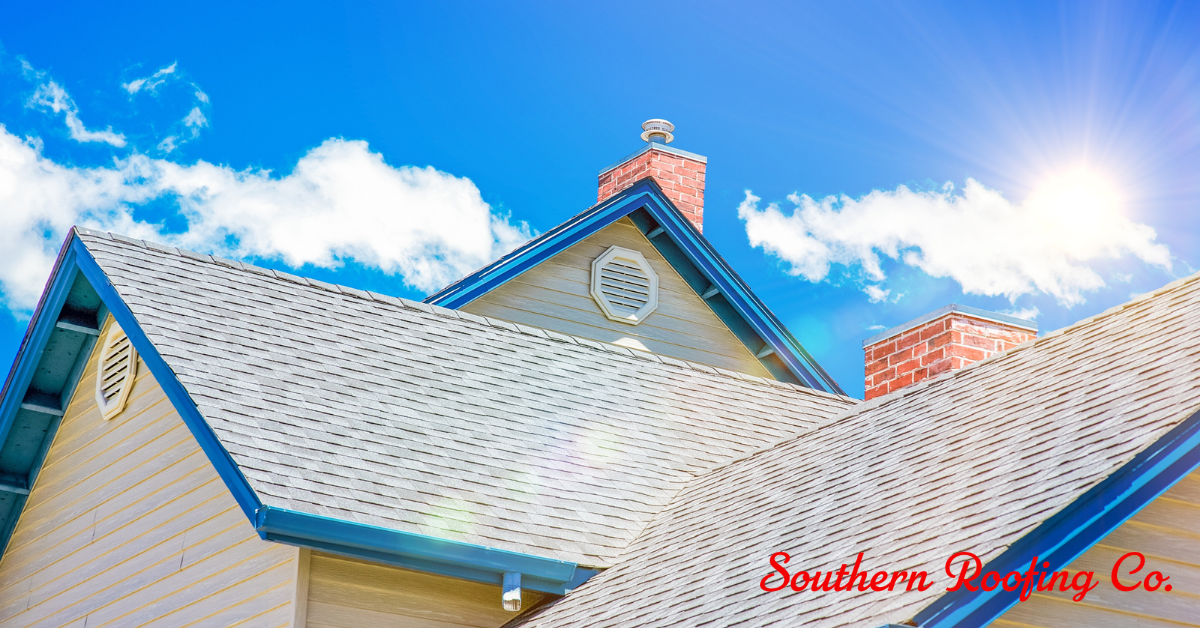
Summer in Middle Tennessee brings more than just barbecues and long sunny days. It also ushers in intense heat, humidity, UV exposure, and the threat of severe thunderstorms—all of which can take a serious toll on your roof. Whether you have asphalt shingles, metal panels, or a flat roof system, understanding how summer weather affects different materials is crucial to prolonging your roof’s life and protecting your home.
As a trusted Middle Tennessee roofing company, we’re here to help you understand how seasonal conditions impact your roof and what you can do to maintain it through the hottest months of the year.
Heat and UV Radiation: Silent Roof Killers
One of the most damaging aspects of summer weather is prolonged exposure to heat and ultraviolet (UV) radiation. On a sunny day, roof temperatures can easily exceed 150°F.
How UV Rays Damage Roofs
- Asphalt Shingles: UV rays degrade the asphalt and dry out the shingle mat, causing cracks, curling, and loss of protective granules.
- Metal Roofs: Metal expands with heat and contracts when it cools. Over time, this can loosen fasteners and seams if not properly installed.
- Flat Roofs (EPDM, TPO, PVC): UV exposure breaks down the membrane surface, especially if the roof is older or uncoated.
If ignored, UV degradation can lead to premature roof repair needs or even total roof replacement.
Humidity and Moisture: A Recipe for Mold and Rot
Middle Tennessee is no stranger to summer humidity, and excess moisture in the air can be just as harmful as heat.
How Humidity Affects Roofing Materials
- Wood Decking: Moisture can seep into the wood beneath your shingles, causing rot, warping, or mold.
- Insulation and Attic: High attic humidity without proper ventilation creates condensation, which leads to mold and water damage.
- Shingle Roofs: Shingles may trap moisture, especially if ventilation is poor, causing the roof to deteriorate from the inside out.
Moisture-related issues often go unnoticed until significant damage has occurred, which is why regular inspections by a roofing contractor are critical during the summer months.
Summer Storms: Wind and Hail Damage
Thunderstorms are a regular occurrence in Middle Tennessee summers, and they can bring damaging winds, heavy rain, and hail.
Storm Damage Risks
- Lifting Shingles: High winds can loosen or remove shingles, leaving your roof vulnerable to leaks.
- Water Intrusion: Heavy rainfall can exploit weak spots in flashing or worn sealants.
- Hail: Hailstones can bruise or crack shingles and even dent metal roofs, shortening the roof’s lifespan.
After any major storm, it's a good idea to schedule an inspection with a roofing company to ensure your home’s exterior is still watertight.
Material Matters: Which Roof Types Handle Summer Best?
Different roofing materials react to summer conditions in different ways. Here's a breakdown of how popular options perform:
Asphalt Shingles
- Pros: Affordable and widely used; UV-resistant granules offer initial protection.
- Cons: Susceptible to heat-related granule loss and curling over time.
- Maintenance Tip: Inspect for granule buildup in gutters and replace curling shingles early.
Metal Roofing
- Pros: Highly reflective, resistant to wind and fire, and long-lasting.
- Cons: Expansion and contraction can loosen seams; requires professional installation.
- Maintenance Tip: Check for loose fasteners or sealant deterioration around flashing.
Tile or Slate Roofing
- Pros: Excellent resistance to heat and UV; long-lasting aesthetic.
- Cons: Heavy and expensive; can crack under hail or shifting foundations.
- Maintenance Tip: Inspect tiles for cracks after storms and ensure underlayment is intact.
Flat Roof Systems (EPDM, TPO, PVC)
- Pros: Easy to install and maintain; can be coated to reflect UV rays.
- Cons: Vulnerable to ponding water and membrane breakdown.
- Maintenance Tip: Apply a white reflective coating and ensure proper drainage systems are clear.
The Role of Proper Ventilation
One of the most overlooked contributors to summer roof damage is poor attic ventilation. Without proper airflow, heat becomes trapped inside the attic, intensifying wear and tear on the underside of your roof.
How Ventilation Helps
- Keeps attic temperatures lower, reducing strain on roofing materials.
- Prevents condensation buildup that can cause rot or mold.
- Enhances energy efficiency by lowering cooling costs.
A professional roofing contractor can evaluate your home’s ventilation and recommend solutions, such as ridge vents or attic fans, to improve air circulation.
Tips for Summer Roof Maintenance
To extend the life of your roof and avoid mid-season surprises, follow these maintenance tips:
- Schedule a Summer Inspection: Have a qualified roofing company assess your roof’s condition, especially after major storms.
- Clean Gutters and Downspouts: Ensure rainwater flows away from the structure and doesn’t pool on the roof or around the foundation.
- Trim Overhanging Branches: Prevent branches from scratching shingles or falling during storms.
- Check Flashings and Seals: Look around chimneys, skylights, and vents for cracked or deteriorated sealant.
- Look for Interior Warning Signs: Water stains on ceilings or musty attic smells could indicate a leak.
When to Call a Middle Tennessee Roofing Company
If you notice cracked shingles, water stains, or if your roof is more than 15–20 years old, it’s time to call Southern Roofing Co. for an evaluation. Regular maintenance and timely roof repairs can delay the need for a full roof replacement, saving you money and preserving your home’s value.
The summer season poses a variety of threats to your roof—from UV damage and humidity to powerful storms. Different roofing materials respond differently, but all require proactive care and regular inspections to stay in peak condition. By understanding the effects of Middle Tennessee’s summer weather and staying on top of maintenance, you can extend your roof’s lifespan and avoid costly issues down the road. Ready for a roof replacement or roof repairs? Contact us today!

